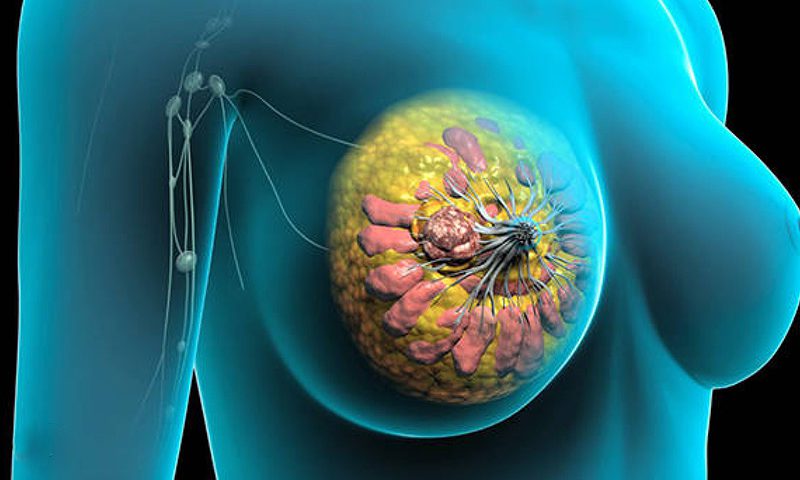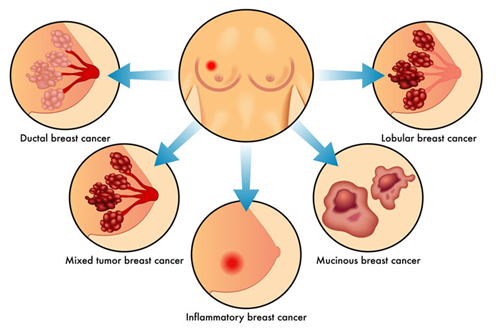
1403/05/20 13:55:04
Proposed solutions for reducing breast cancer
Proposed strategies to reduce breast cancer:
- Maintain a healthy weight, which is even more important after menopause.
- Regular exercise (at least 45-60 minutes, five days a week, plus aerobic activities and strength training at least twice a week).
- Check your vitamin D levels (this vitamin can be obtained from sunlight, supplements, and certain fish).
- Avoid hormone treatments without a doctor's prescription.
- Using OCP (oral contraceptive pills), which can increase risk, and this risk may persist for up to 10 years after stopping them.
- Breastfeeding for at least a year can lower estrogen levels and decrease breast cancer risk.
- Don’t smoke.
- Avoid alcohol.
- Reduce light exposure during nighttime sleep.
- Steer clear of meats that are cooked at high temperatures, such as grilled, barbecued, or smoked.
- Use a filter to purify water from the tap.
- Avoid cooking food in plastic containers or drinking water from plastic bottles.

Risk factors for breast cancer:
- Some factors can't be changed, like family history and age.
- Factors dependent on lifestyle and living conditions.
- Factors that have not been conclusively proven or are still debated, where consensus has yet to be reached.
Post-Diagnosis and Treatment Follow-Up Program for Breast Cancer
Regular medical check-ups: Initially every few months, gradually extending the intervals based on the specialist's advice.
Mammograms: If breast-sparing surgery was done, one should have a mammogram 6 months after surgery and the completion of radiotherapy, and then annually. If a mastectomy was performed, annual mammograms for the opposite breast are essential.
Pelvic exams: If hormone therapy is prescribed and the uterus hasn't been removed, these should occur annually since these medications may increase the risk of uterine cancer, especially in women approaching menopause. Any changes in bleeding patterns or spotting after menopause or between periods should prompt a doctor's visit and examinations.
Bone density tests
Other tests (like chest X-rays, bone scans, etc.) are not part of routine follow-up but can help women who live long after treatment if there are signs or examinations suggesting the need for monitoring cancer recurrence.
The National Comprehensive Cancer Network guidelines for the care of cancer survivors and fundamental principles of a healthy lifestyle are as follows:
- Maintain a healthy weight
- Encourage choosing a more active lifestyle
- Screening and counseling for tobacco and alcohol cessation
- Counseling for proper nutrition with an emphasis on plant-based resources
Daily and regular health check-ups for these individuals include:
* Measuring blood pressure, cholesterol, and blood sugar
* Bone density testing
* Daily dental care
* Sun exposure
* Annual vaccinations for pneumonia and flu
* Screening for depression
How to deal with issues that arise after chemotherapy or radiation therapy:
Nausea and vomiting after chemotherapy can even make dressing and eating difficult. The first and best treatment is to use anti-nausea medications under the supervision of the treatment team, along with dietary recommendations from a nutritionist, such as:
- Eating small but frequent meals
- Avoiding foods with strong smells
- Steering clear of hot foods
- Paying attention to room temperature
- Avoiding overly sweet and fried foods
- Rinsing the mouth before and after meals
- Drinking ginger and mint tea.
Diarrhea can be managed with foods high in potassium and sodium, as well as soluble fibers like oats, bananas, applesauce, and barley, which help bulk up stool.
Constipation, which can lead to a loss of appetite, needs attention to mental health and antidepressant treatments, along with using laxatives under the supervision of the treatment team. The first step is to increase fluid and high-fiber food intake to regulate bowel movements. It’s better to consume fewer carbonated drinks. Chewing gum and drinking through straws may cause increased gas in the intestines.
Lymphedema (swelling)
It's best to avoid any skin damage or cracks. No injections or biopsies should be done on the affected limb. To protect your hands while washing dishes, gardening, or using tools, wear gloves, pay attention to nail hygiene, but don’t trim the thick skin around the nails. Use sunscreen.
Avoid limb constriction, refrain from taking blood pressure in that limb, and prefer comfortable clothing. Take measures to prevent infections. If there’s a sudden fever or pain in the limb, seek an examination.
